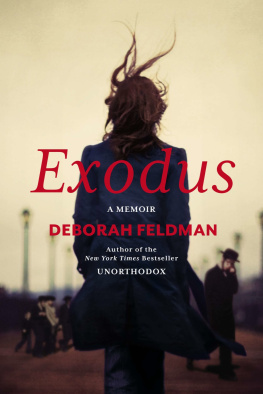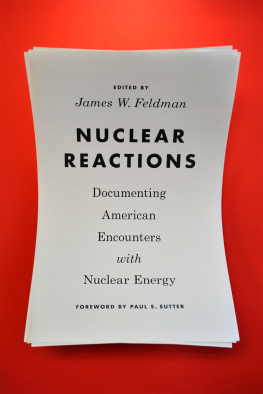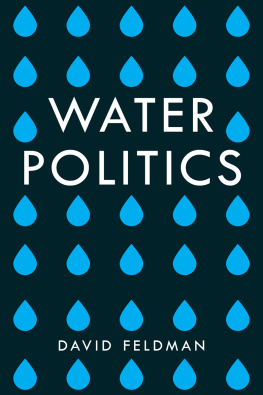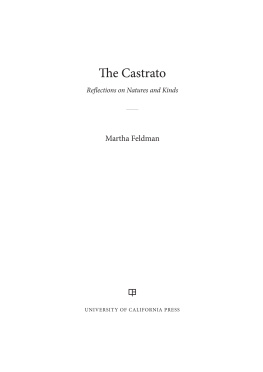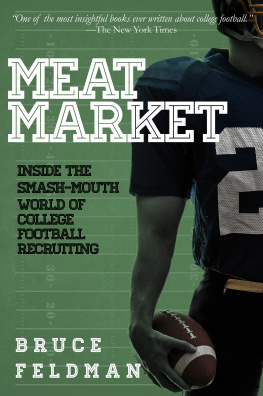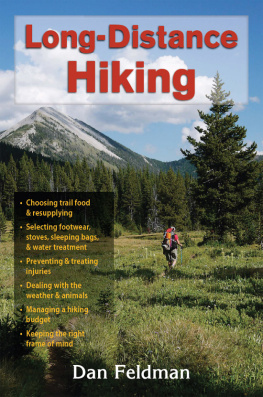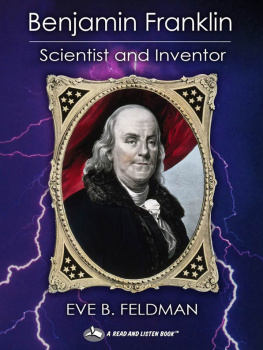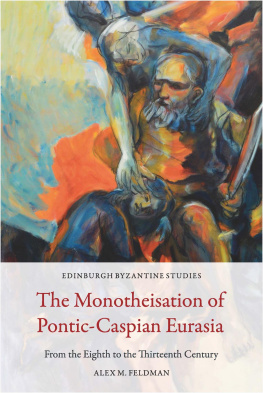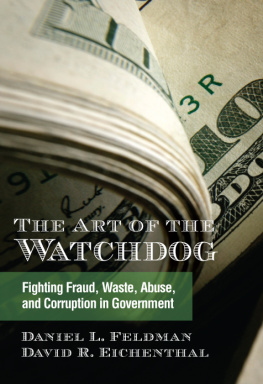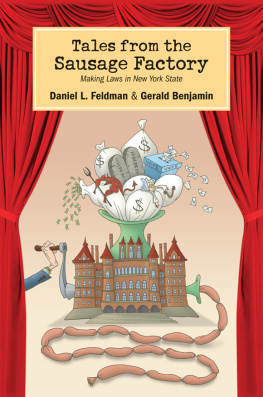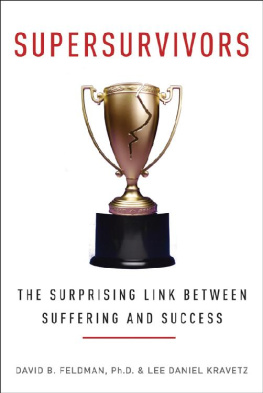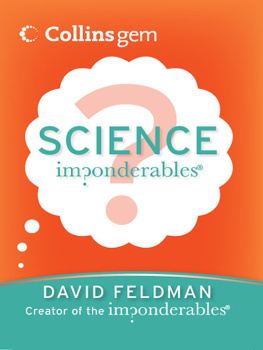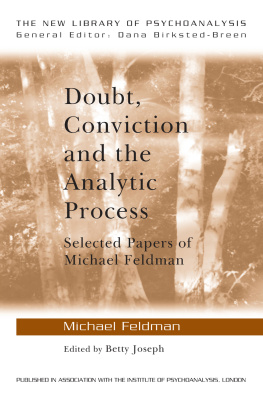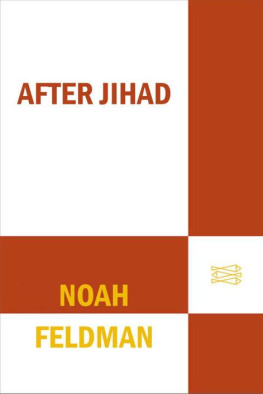Feldman - Divided by God : Americas Church-state Problem - and What We Should Do About It
Here you can read online Feldman - Divided by God : Americas Church-state Problem - and What We Should Do About It full text of the book (entire story) in english for free. Download pdf and epub, get meaning, cover and reviews about this ebook. year: 2006, publisher: Macmillan, genre: Politics. Description of the work, (preface) as well as reviews are available. Best literature library LitArk.com created for fans of good reading and offers a wide selection of genres:
Romance novel
Science fiction
Adventure
Detective
Science
History
Home and family
Prose
Art
Politics
Computer
Non-fiction
Religion
Business
Children
Humor
Choose a favorite category and find really read worthwhile books. Enjoy immersion in the world of imagination, feel the emotions of the characters or learn something new for yourself, make an fascinating discovery.

Divided by God : Americas Church-state Problem - and What We Should Do About It: summary, description and annotation
We offer to read an annotation, description, summary or preface (depends on what the author of the book "Divided by God : Americas Church-state Problem - and What We Should Do About It" wrote himself). If you haven't found the necessary information about the book — write in the comments, we will try to find it.
Feldman: author's other books
Who wrote Divided by God : Americas Church-state Problem - and What We Should Do About It? Find out the surname, the name of the author of the book and a list of all author's works by series.
Divided by God : Americas Church-state Problem - and What We Should Do About It — read online for free the complete book (whole text) full work
Below is the text of the book, divided by pages. System saving the place of the last page read, allows you to conveniently read the book "Divided by God : Americas Church-state Problem - and What We Should Do About It" online for free, without having to search again every time where you left off. Put a bookmark, and you can go to the page where you finished reading at any time.
Font size:
Interval:
Bookmark:

NOAH FELDMAN
Divided by God
Noah Feldman, who teaches law at New York University, has emerged as the leading expert on the relations between religion and government worldwide. He is the author of three books: Divided by God; After Jihad, which put him into the center of an unruly brawl now raging in policy circles over what to do with the Arab world (The New York Times Book Review); and What We Owe Iraq, which Richard A. Clarke called insightful, accessible, and highly recommended. A former U.S. Supreme Court clerk, and presently a fellow at the New America Foundation, he lives in New York City.
ALSO BY NOAH FELDMAN
After Jihad: America and the Struggle for Islamic Democracy
What We Owe Iraq: War and the Ethics of Nation Building
DIVIDED BY GOD
BY GOD

AMERICAS CHURCH-STATE PROBLEM
AND WHAT WE SHOULD DO ABOUT IT

NOAH FELDMAN

Farrar, Straus and Giroux
19 Union Square West, New York 10003
Copyright 2005 by Noah Feldman
Preface to the paperback edition copyright 2006 by Noah Feldman
All rights reserved
Distributed in Canada by Douglas & Mclntyre Ltd.
Printed in the United States of America
Published in 2005 by Farrar, Straus and Giroux
First paperback edition, 2006
The Library of Congress has cataloged the hardcover edition as follows:
Feldman, Noah, 1970
Divided by God : Americas church-state problemand what we
should do about it / Noah Feldman. 1st ed.
p. cm.
Includes bibliographical references and index.
ISBN-13: 978-0-374-28131-1 (hardcover : alk. paper)
ISBN-10: 0-374-28131-9 (hardcover : alk. paper)
1. Church and stateUnited StatesHistory. I. Title.
BR516 .F43 2005
322'.1'0973dc22
2005007064
Paperback ISBN-13: 978-0-374-53038-9
Paperback ISBN-10: 0-374-53038-6
Designed by Debbie Glasserman
www.fsgbooks.com
3 5 7 9 10 8 6 4 2
In memoriam
Alan Heimert
19281999
DIVIDED BY GOD
(2006)
When does life begin? When does it end? With whom may we form the most intimate bonds? These profound questionsmade concrete through the issues of stem-cell research, the right to die, and same-sex marriagehave dominated the domestic agenda in the year since this book was first published, and in each case the question has been posed as a religious question. The intensity with which these issues are felt and fought outstrips the intensity brought to problems of natural disaster, war, and peace. Each divides the American public in ways far deeper than mere partisan loyalty.
Religion alone does not drive these passionate policy disagreements. What lies behind them is a basic question about who we are as a people: What is the right relationship between religion and government here in our country? Evangelicals (and others) who believe that faith provides the values we need to make policy feel it is only right that religious ideals about body and soul should guide the government when it regulates abortion, euthanasia, and marriage. Others (some of them believers, some secularists) who see religion only as a private matter naturally believe that values derived from faith should play no part whatsoever when the government passes laws. Tell me whether you think religion should matter in public policy, and I can guess what you think about these salient issues.
The core question of how religion should figure into law and politics has been with us since the framers of our Constitution designed our government. Although they set us on our path by guaranteeing religious liberty and barring the establishment of religion, they left much undecided. As the country has changed, each generation of Americans has had to give its own answers to our church-state problem. This book traces that process through successive waves of immigration, which expanded our religious diversity beyond its Protestant origins, and through the birth of new institutionssuch as public schoolingunanticipated by the framers. And it brings us into the present, suggesting that our own divisions can be narrowed if we rethink the solutions we have inherited.
For most of our history, the relationship between religion and government has been determined through the political process. Only in the last fifty years have the courts become a major battleground. Today, new developments on the Supreme Court suggest that we are in for some significant changes in church-state affairs. In her quarter century on the Court, Justice Sandra Day OConnor crafted a compromise position, often allowing state funding of religious schools and activities while blocking many public displays of religious symbols. Time after time, she cast the key vote in 54 decisions. In January 2006, she was replaced by Justice Samuel A. Alito, Jr., a conservative whose views seem likely to differ, especially when it comes to public expressions of religion. The balance on the Court will shift, and Justice OConnors compromise may be replaced piecemeal by something new.
This prospective change brings a new opportunity to imagine our own answer to the question of the right relationship between church and state. We need to take steps to make that happennot just in the courts, but in the public mind. The stakes are too high, the issues too fundamental, for us to accept our division as inevitable. We can change, if we want toour history proves it.
In the darkest days of the Civil War, the absolute low point of division in American history, Abraham Lincoln could still imagine religion as a potentially unifying force. North and South, he observed in his second inaugural address, prayed to the same God and read the same Bible, even if they interpreted it differently. Through a shared faith, the American people could someday bind up the nations wounds, inflicted by a just God as punishment for the original sin of slavery.
Today, the overwhelming majority of Americans still say they believe in God, but a common understanding of how faith should inform nationhood can no longer bring Americans together. To the contrary, no question divides Americans more fundamentally than that of the relation between religion and government. For many, moral values derived from religion are the lodestar of political judgment. Almost a quarter of the electorate in the 2004 presidential election described values as the most important issue to them, and of these, some four-fifths voted for President George W. Bush. Although church membership did not predict which candidate a voter would choose, one statistic stood out sharply: the more often you attended church, the more likely you were to vote for President Bush.
The deep divide in American life, then, is not primarily over religious belief or affiliationit is over the role that belief should play in the business of politics and government. Consider same-sex marriage, which appeared on ballots in eleven states in 2004 and shows no sign of disappearing from public debate. Many Americans insist that marriage is between one man and one woman but say they have no objection to civil unions that give gay couples the same rights as married people. If there is no legal difference between civil union and marriage, why object to the word marriage? Whats in a name? The obvious answer is that even though marriage is a state institution, it has a traditional religious definition, which opponents of same-sex marriage do not want to change. The reason so many people oppose same-sex marriage is that they believe the states sanction of marriage should take account of a moral value derived from religion.
Next pageFont size:
Interval:
Bookmark:
Similar books «Divided by God : Americas Church-state Problem - and What We Should Do About It»
Look at similar books to Divided by God : Americas Church-state Problem - and What We Should Do About It. We have selected literature similar in name and meaning in the hope of providing readers with more options to find new, interesting, not yet read works.
Discussion, reviews of the book Divided by God : Americas Church-state Problem - and What We Should Do About It and just readers' own opinions. Leave your comments, write what you think about the work, its meaning or the main characters. Specify what exactly you liked and what you didn't like, and why you think so.

